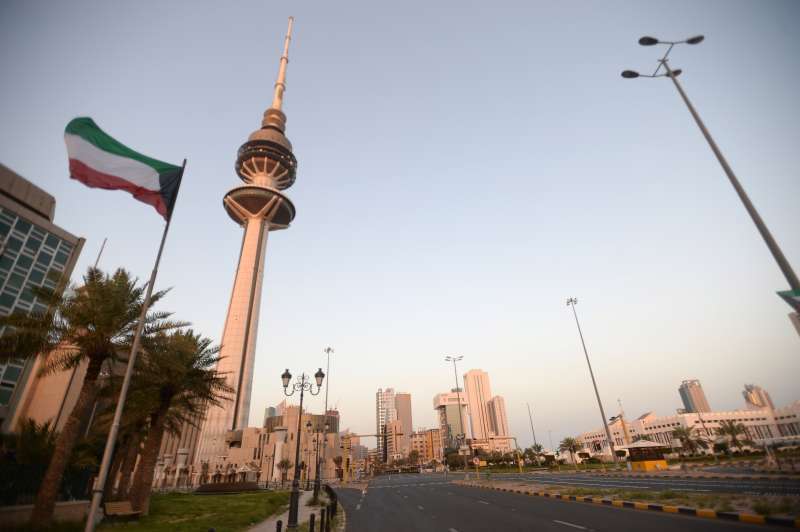Latest News
- Kuwait-Jordan Durra Field Joint Statement Rejected By Iran
- GTD Cracks Down On Vehicle Noise Pollution In Sulaibiya
- Mystery Of Dead Fish At Shuwaikh Beach Sparks Urgent Action
- MEW To Complete Links With The Interior And Justice Ministries B...
- 8 Expats Jailed For Bribing An Officer To Obtain Driver's Licens...
- Weekend Weather Is Expected To Be Hot
- From Tomorrow, Traffic Diversion On Third Ring Road
- Ministry Of Health Refute Rumors On Non-availability Of Antibiot...
- Amir Of Kuwait And Jordan King Renew Commitment To Regional Secu...
- 37 Arrested With Narcotics And Firearms
- Outrage Over Candidate's Arrest
- Six Stores Shut Down In Jahra For Selling Fake Goods
Stalled Reforms Linked To Politics Threaten Kuwait's Economy

Kuwait's economic recovery continues despite efforts to contain inflation, but there are still risks, especially because of the fluctuation of oil prices and oil production, according to the International Monetary Fund (IMF). Resolving the political stalemate in Kuwait can accelerate the required financial and structural reforms, enhance investor confidence, and stimulate private investment, reports Al-Rai daily. In a press statement issued following the conclusion of the 2023 consultations with Kuwait, the IMF explained that the large financial and external buffer margins that Kuwait enjoys enable it to carry out the necessary reforms from a position of strength, but the political stalemate between the government and the National Assembly may continue to delay reforms.
Delaying financial and structural reforms may exacerbate the risks associated with pro-cyclical fiscal policy and undermine investor confidence. These delays impede progress towards diversifying the economy, which makes it more vulnerable to the risks of climate change. There is a need for comprehensive and supportive fiscal control in order to enhance the sustainability of public finances and support intergenerational justice. Starting from the next fiscal year, non-oil revenues should be increased and the stagnation in current spending should be addressed.
Additionally, capital expenditures should be increased to increase potential growth. The public revenue reform measures could include the imposition of selective tax and value-added tax, and the expansion of corporate income tax to include local companies. Public spending measures should focus on reducing the wage bill and the gradual abolition of energy subsidies while improving targeted income support measures. IMF stressed the need to follow up the controlling of public finances to support intergenerational justice, and structural reforms to diversify the economy, indicating that there is a need for strong growth in non-oil sectors led by the private sector to accommodate new entrants to the labor market. Kuwaitis should be motivated to seek jobs in the private sector through labor market reforms that enhance the wage structure in order to make it more market-compatible in order to motivate them to do so. In addition to gradually harmonizing wages and working conditions between the public and private sectors, social safety net reforms must be implemented alongside adequate social protection during the transition period to ensure sufficient protection for citizens.
The IMF said Kuwait's banking system is considered stable and immune to systemic risks, and is supported by a strong precautionary framework that needs to be strengthened. Kuwait has witnessed a significant recovery in its economy in 2022, with real GDP growth rising to 8.2%, at a time when nominal growth slowed to 0.1% in 2023, reports Al-Qabas daily. However, this decline on paper is the result of the country’s declining production of oil more than any major swing in its economic fate according to recent MEED report.
As noted in the report, reducing the country's oil exports will naturally have a significant impact on the country's main growth, since it announced in April a reduction of 128 thousand barrels per day, which represents about 10% of the total reductions made by OPEC, which is about 1% of the total reductions. 5 produced by Kuwait. In May and June, Kuwait pumped 2.55 million barrels per day of crude oil, down from 2.65 million barrels per day in April. For 2024, the country’s share is 2.676 million barrels per day, reports Al-Qabas daily. It was reported by MEED that Kuwait's main real GDP growth is affected by oil production and price fluctuations, but the country continues to enjoy strong domestic demand and robust non-oil growth, with non-oil GDP expected to grow by 3.8% in 2023.
Get The Latest and important news on our Telegram Channel click here to join
Trending News
-
 Kuwait Implements Home Biometrics Services Ahead O...
14 April 2024
Kuwait Implements Home Biometrics Services Ahead O...
14 April 2024 -
 Kuwait Airways Provides Update On Flight Schedule...
14 April 2024
Kuwait Airways Provides Update On Flight Schedule...
14 April 2024 -
 Kuwait Airways Introduces Convenient Home Luggage...
15 April 2024
Kuwait Airways Introduces Convenient Home Luggage...
15 April 2024 -
 Expat Residency Law Amended By Kuwait Ministerial...
20 April 2024
Expat Residency Law Amended By Kuwait Ministerial...
20 April 2024 -
 Two Expats Are Arrested For Stealing From Salmiya...
17 April 2024
Two Expats Are Arrested For Stealing From Salmiya...
17 April 2024 -
 Kuwait Airways Resumes Flights To Beirut And Oman...
15 April 2024
Kuwait Airways Resumes Flights To Beirut And Oman...
15 April 2024 -
 Temperature Increases Cause Electricity Load Index...
21 April 2024
Temperature Increases Cause Electricity Load Index...
21 April 2024 -
 Thief Returns Stolen Money With An Apology Letter...
15 April 2024
Thief Returns Stolen Money With An Apology Letter...
15 April 2024 -
 3 Expats Caught In Salmiya With 213 Bottles Of Loc...
23 April 2024
3 Expats Caught In Salmiya With 213 Bottles Of Loc...
23 April 2024 -
 Ministry Of Interior Denies Social Media Rumors Re...
13 April 2024
Ministry Of Interior Denies Social Media Rumors Re...
13 April 2024












Comments Post Comment